John Murillo's Voice Exercises
P&W has supported poet John Murillo’s readings and workshops with organizations such as Page Meets Stage, the Gwendolyn Brooks Center, and Insight Arts. His first poetry collection, Up Jump the Boogie (Cypher 2010), was a finalist for the 2011 Kate Tufts Discovery Award and runner up for the PEN Open Book Award. This fall he joined the University of Miami as visiting assistant professor of creative writing. Murillo generously shared some of his experience as a writer with us.
What are your 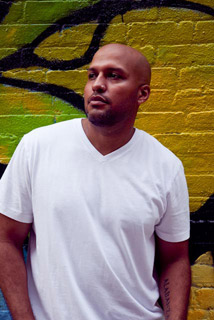 reading dos?
reading dos?
Always be considerate of your co-features and adhere to schedule. It's never a good look to read so long that other readers have to decide, on the fly, which of their poems to cut from their set.
… and your reading don’ts?
Don't ignore your audience. Sounds like a no-brainer, but I've suffered through too many readings where poets simply read poem after poem without any interaction with the crowd. Hearing poems read aloud and reading from the printed page are different experiences—each offering something you can't get from the other—and should be treated as such. Introduce poems, tell a joke or two. Let the people get to know you a bit, spend some time. If we (the audience) wanted only the words printed on the page, we could read to ourselves at home... for free.
How do you prepare for a reading?
The first thing I need to know is how much time I have. Then, I plan my set—not just timing the poems themselves, but allowing time for interaction—to fit within those parameters. I'll spend time with the poems I've chosen, reading them aloud, listening for the music or lack therein. I imagine how certain poems may land with certain listeners—emotionally, sonically, etc.—and try to create an arc that provides them with an experience worth leaving the house for. I sometimes do breathing and voice exercises too, to keep my “chops” up.
What’s your crowd-pleaser, and why does it work?
In the past, I've read poems I myself didn't care for too much, simply because of the way I knew audiences would react. I'd get a laugh or two, maybe some applause, but nothing like a real connection. I've realized over the years that people just want to hear good poems. Typically, the same poems that “work” on the page also read well live. No matter the venue. The danger for me lies in relying too heavily on these poems, becoming too comfortable reading poems I know will go over well. There's very little vulnerability in that and if one isn't careful, that laziness can creep into the writing, and then the poems themselves become safe. To hell with that.
How does giving a reading inform your writing and vice versa?
I believe poems are meant to be shared, read, and listened to. From one's lips to another's ear, or from one's hand to another's eyes, no matter. The live reading is something that never lets me forget that I am a human being reaching out to, trying to communicate with, other human beings. This definitely affects the choices I make when writing and revising.
What’s been your most rewarding experience as a writing teacher?
What I love most is when students begin to claim their own voices. In a society that cultures young people into silence and, by extension, apathy, there are few things as powerful as a young writer asserting her right to be heard. And there are few things as satisfying for the teacher as knowing you had a little hand in the midwifing of this new and necessary voice.
Photo: John Murillo. Credit: Rachel Eliza Griffiths.
Support for Readings/Workshops events in Chicago is provided by an endowment established with generous contributions from the Poets & Writers Board of Directors and others. Additional support comes from the Friends of Poets & Writers.
Support for Readings/Workshops in New York City is provided, in part, by public funds from the New York State Council on the Arts, and the New York City Department of Cultural Affairs, with additional support from the Louis & Anne Abrons Foundation, the Axe-Houghton Foundation, the A.K. Starr Charitable Trust, and the Friends of Poets & Writers.





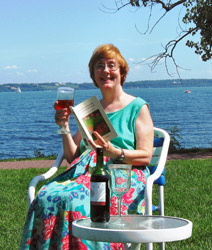 I’d written a grant proposal to Poets & Writers for a three-week workshop: Writing Your Way Through History, the first program ever held in the museum. I showed up at the appointed time, fully expecting no one to be there. In semi-rural areas, the hardest aspect of putting on an event is publicizing it, and we hadn’t done much. Even so, right on the dot, several people climbed the stairs to meet me. A short while later a few others arrived. In all, seven people attended at least part of the program, including a fourth-grader, granddaughter of a Terwilliger Museum member. Armed with a sheet of writing prompts I’d given them, participants explored the museum, searching for characters and stories amongst the museum’s holdings. After an hour, we retired to a cozy nook with tables and chairs in the library adjacent to the museum, an ideal writing space.
I’d written a grant proposal to Poets & Writers for a three-week workshop: Writing Your Way Through History, the first program ever held in the museum. I showed up at the appointed time, fully expecting no one to be there. In semi-rural areas, the hardest aspect of putting on an event is publicizing it, and we hadn’t done much. Even so, right on the dot, several people climbed the stairs to meet me. A short while later a few others arrived. In all, seven people attended at least part of the program, including a fourth-grader, granddaughter of a Terwilliger Museum member. Armed with a sheet of writing prompts I’d given them, participants explored the museum, searching for characters and stories amongst the museum’s holdings. After an hour, we retired to a cozy nook with tables and chairs in the library adjacent to the museum, an ideal writing space.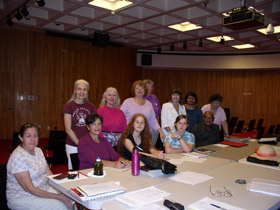
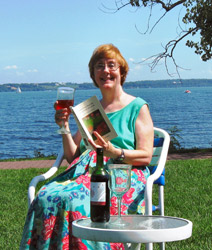 I eat my picnic lunch at a table outside the adorable structures (Baby Bear is as big as a child’s playhouse) savoring sunshine and drifting leaves. Spotting a tiny thrift shop across the street, I'm there in a flash. It’s full of almost all new clothes, each item a dollar! Soon, clutching five items, I approach a sweet-faced lady in her 80s who serves as volunteer cashier. Suddenly I realize I've left home with no cash! The thrift shop does not accept credit cards or checks. The cashier tells me I can come back later to pay. "We close at one.” I say, "But I'm doing a poetry reading at the
I eat my picnic lunch at a table outside the adorable structures (Baby Bear is as big as a child’s playhouse) savoring sunshine and drifting leaves. Spotting a tiny thrift shop across the street, I'm there in a flash. It’s full of almost all new clothes, each item a dollar! Soon, clutching five items, I approach a sweet-faced lady in her 80s who serves as volunteer cashier. Suddenly I realize I've left home with no cash! The thrift shop does not accept credit cards or checks. The cashier tells me I can come back later to pay. "We close at one.” I say, "But I'm doing a poetry reading at the 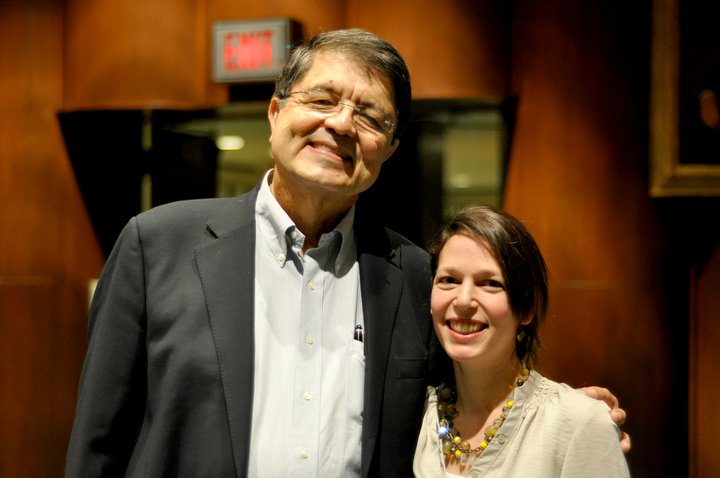 What makes your programs unique?
What makes your programs unique?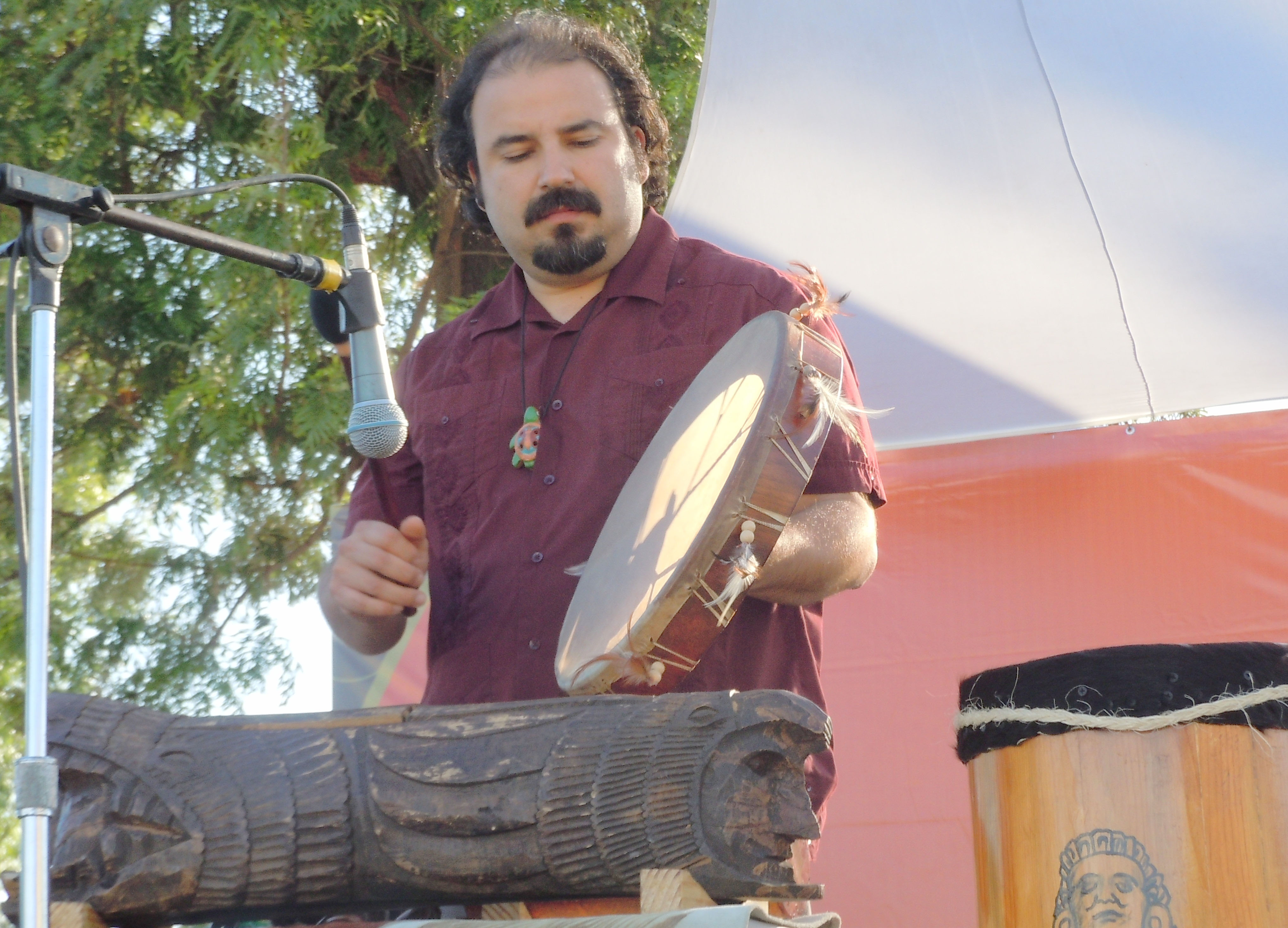
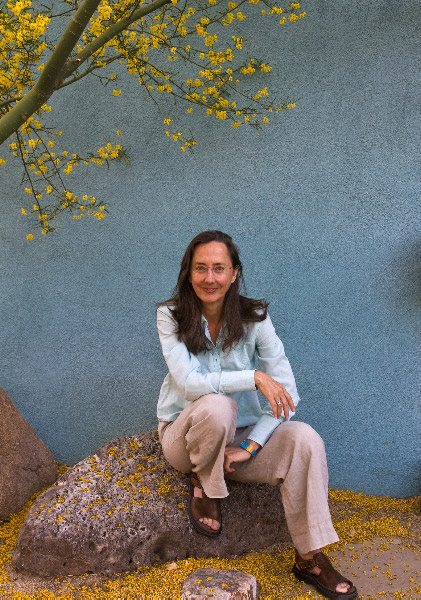 The poet-sage Matsuo Bashō, born 1644, wrote in memoriam of a friend, “never think of yourself / as someone who did not count— / festival of the souls.” Ueda translated this Japanese haiku into English. The poet-artist Marlene Mountain, born 1939, wrote “white sugar white flour white male”—no translation necessary: It was originally written in U.S. English. Mountain’s haiku reflects the three word-cluster device of classic one-line Japanese haiku as well as its device of image juxtaposition: The first and second word clusters are specific images; the third word cluster, “white male,” is metaphoric, resembling one (including males of color and all females) who, offering no nourishment, choose instead to promote oppressive practices that strip people and things of their inherent value. As Bashō’s tone was of his time and place, Mountain’s is of ours—and each poet agitates the soul: Will I be remembered? How will I remembered?
The poet-sage Matsuo Bashō, born 1644, wrote in memoriam of a friend, “never think of yourself / as someone who did not count— / festival of the souls.” Ueda translated this Japanese haiku into English. The poet-artist Marlene Mountain, born 1939, wrote “white sugar white flour white male”—no translation necessary: It was originally written in U.S. English. Mountain’s haiku reflects the three word-cluster device of classic one-line Japanese haiku as well as its device of image juxtaposition: The first and second word clusters are specific images; the third word cluster, “white male,” is metaphoric, resembling one (including males of color and all females) who, offering no nourishment, choose instead to promote oppressive practices that strip people and things of their inherent value. As Bashō’s tone was of his time and place, Mountain’s is of ours—and each poet agitates the soul: Will I be remembered? How will I remembered? 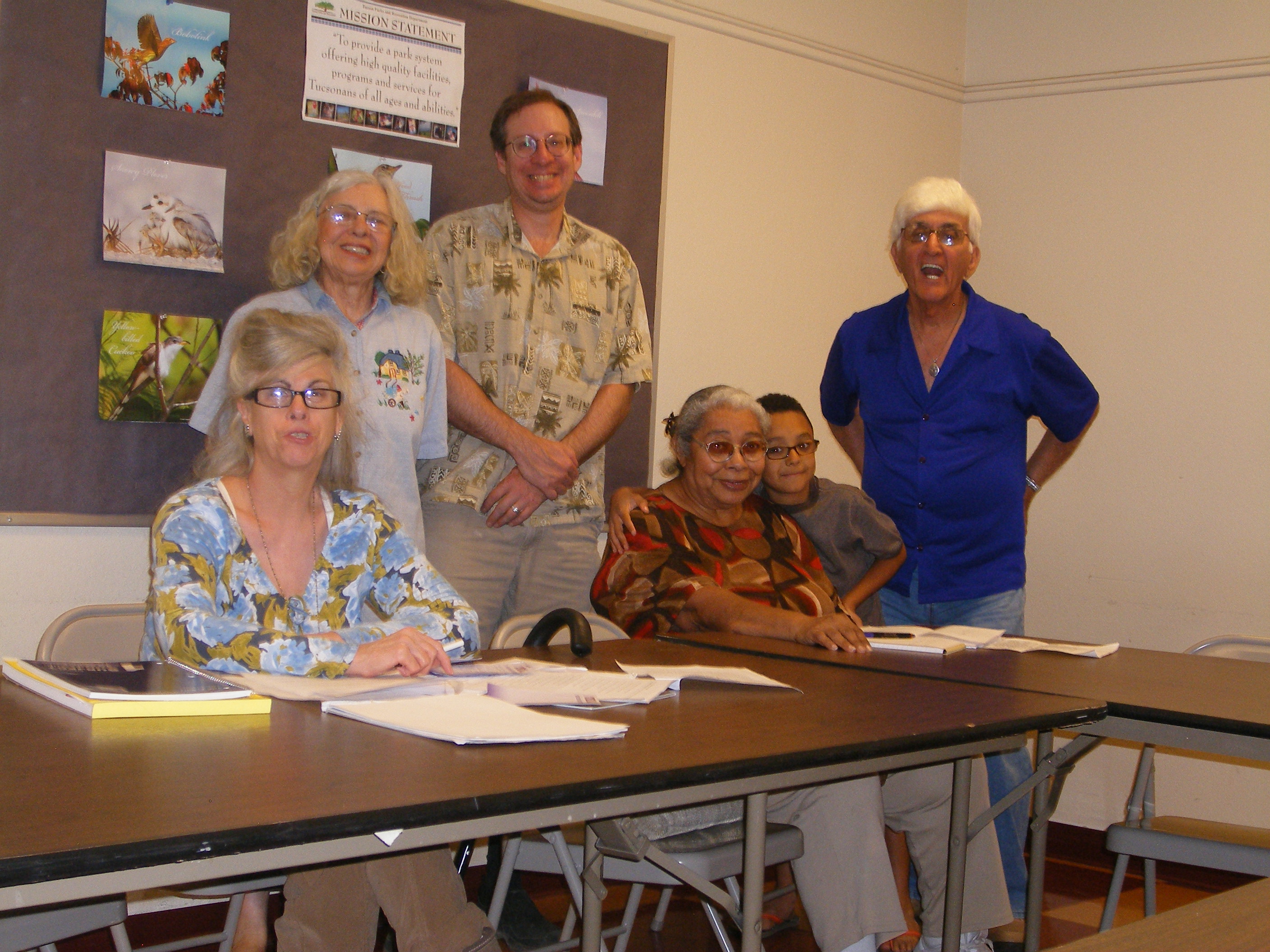 Workshop Two, focusing on the haiku of Marlene Mountain, explored how the initial haiku in U.S. English (introduced, arguably, in the 1950s) evolved into what is currently promoted in English as a form of ten-to-fourteen syllables. Throughout, but mostly in Workshop Three, attendees shared original work: One participant incorporated calligraphy; another haibun; another read haiku in German, demonstrating how sound patterns, even without sense, can convey emotion.
Workshop Two, focusing on the haiku of Marlene Mountain, explored how the initial haiku in U.S. English (introduced, arguably, in the 1950s) evolved into what is currently promoted in English as a form of ten-to-fourteen syllables. Throughout, but mostly in Workshop Three, attendees shared original work: One participant incorporated calligraphy; another haibun; another read haiku in German, demonstrating how sound patterns, even without sense, can convey emotion.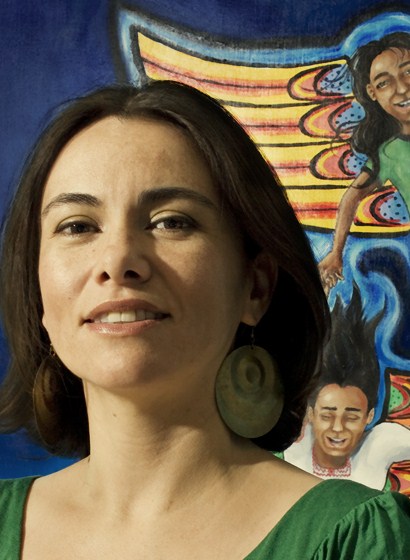 When
I was eight, my parents packed all five of us kids into an old, avocado-green
station wagon and drove us to Bakersfield
to pick onions. Once there, we toiled in the vicious heat, snapping enormous green
scissors, filling coarse brown sacks with dusty white onions. One foreman came by
every so often to halfheartedly shoo us kids off the field. Within minutes after
he disappeared, we’d run back to our parents to help with the onion picking or the
dragging of sacks that inevitably grew heavier with each added onion.
When
I was eight, my parents packed all five of us kids into an old, avocado-green
station wagon and drove us to Bakersfield
to pick onions. Once there, we toiled in the vicious heat, snapping enormous green
scissors, filling coarse brown sacks with dusty white onions. One foreman came by
every so often to halfheartedly shoo us kids off the field. Within minutes after
he disappeared, we’d run back to our parents to help with the onion picking or the
dragging of sacks that inevitably grew heavier with each added onion. 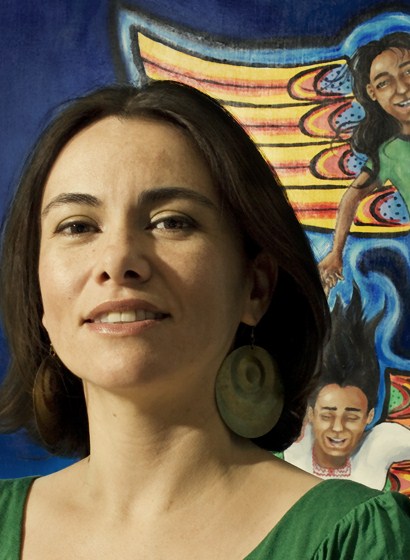 We gathered at
We gathered at